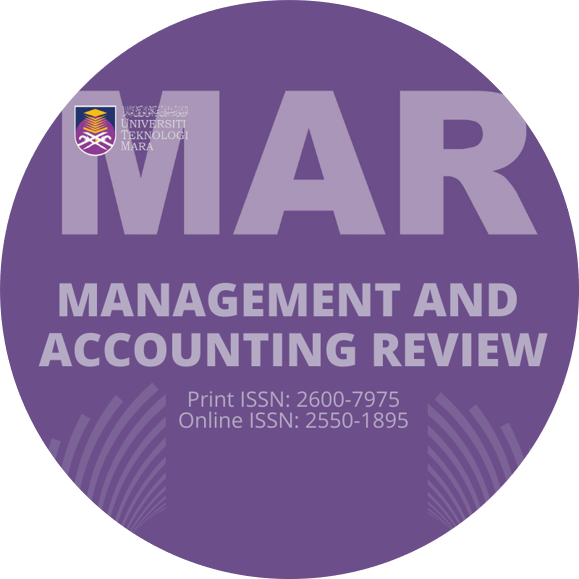Volume 17 No. 3, December 2018
ARTICLE INFO
Article History:
Received: 17 April 2018
Accepted: 27 June 2018
Available online: 31 December 2018
MANAGEMENT AND ACCOUNTING REVIEW, VOLUME 17 NO 3, DECEMBER 2018
Internal Audit Effectiveness in Zakat Institutions from the Perspective of the Auditee
Noraini, Shamsuddina, Ju Anizai Zainib, Nazifah Mustaffhaa and Norhanizah, Joharia
aDepartment of Accounting and Finance, Faculty of Management and
Muamalah, International Islamic University College of Selangor, Malaysia
bSchool of Accountancy, Faculty of Economics and Management,
Universiti Kebangsaan Malaysia, Malaysia
ABSTRACT
Internal audit function (IAF) is one of the most important meanings for management to confirm and verify the compliance of administrative units in the financial and administrative policies, legislations, financials and administrative systems as well as the adoption of public policies. IAF also helps in running an organization more efficiently and effectively to increase stakeholders’ value. IAF is important due to the growing size and attention given to zakat institutions in recent years. Due to the importance of IAF, this paper aims to identify the perceived effectiveness of internal audit departments (IAD) in zakat institutions (ZI) from the auditees’ perspective to assist in improving the IAF. To develop an understanding of the factors that lead to the effectiveness of the IAD, this paper used a semi-structured interview with auditees from four selected ZI in Malaysia. Each ZI was represented by two auditees from two different departments. There are two factors explored, namely organizational status and competency of IAD. The findings show that both factors are important to achieve effectiveness in the IAF. Additionally, most of the auditees (ZI1, ZI2 and ZI3) agreed that management support is the main factor affecting IAD effectiveness. Meanwhile, ZI4 perceived that training is the main factor contributing to the same effectiveness. It is hoped that the findings can increase awareness among ZI auditors and management to improve IAD effectiveness in the future.
Keywords: Internal audit, internal audit effectiveness, zakat institution, competency, organizational status
Keywords: Internal audit, internal audit effectiveness, zakat institution, competency, organizational status





